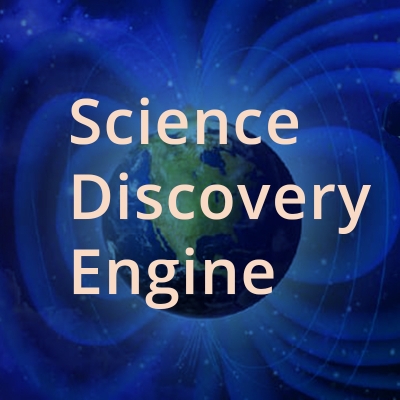NASA annually bestows agency medals and awards upon select government and non-government individuals and teams during special ceremonies at each NASA center. Recently, NASA announced that Dr. Manil Maskey, who serves as the deputy manager of IMPACT, has been honored with the prestigious NASA Silver Achievement Medal, and the IMPACT Airborne Data Management Group (ADMG) has been honored with the NASA Silver Group Achievement Award. These Silver Achievement distinctions are conferred upon individuals or teams in recognition of exceptional achievements that exemplify one or more of NASA’s Core Values—safety, excellence, teamwork, integrity, and inclusion. The awards serve as timely and personalized acknowledgments of extraordinary accomplishments that merit special recognition.
In his role as IMPACT deputy manager, Dr. Maskey helps oversee the planning and execution of all IMPACT projects, and he is particularly involved in developing innovative technical approaches and designing new systems. Receiving the NASA Silver Achievement Medal is a testament to his outstanding leadership abilities and proficiency in the field of data visualization, his contributions to the advancement of interactive data exploration tools, and his use of artificial intelligence techniques in science.
One notable example of Dr. Maskey’s exemplary leadership is the development of the tri-agency dashboard, an initiative that originated from a collaborative effort among NASA, the European Space Agency (ESA), and the Japan Aerospace Exploration Agency (JAXA) in early 2020, coinciding with the emergence of the COVID-19 global pandemic. The dashboard provides access to Earth-observing satellite data and a suite of data exploration tools, illustrating the immense potential of Earth observation data in tracking changes on our planet. Remarkably, Dr. Maskey and his team successfully developed the COVID dashboard within a two-month timeframe — a truly commendable achievement.

Dr. Maskey emphasized how collaborating with a diverse group of colleagues and maintaining a relentless drive to expand his knowledge in building innovative systems were influential in inspiring the work that earned him this award.
"As a data science practitioner, I work in two key fields: data visualization and computer vision — both of which were themes of my PhD research. In these fields, I am constantly reminded that the learning never stops, and no one knows everything. In the development of the trilateral dashboard, I had the opportunity to collaborate with a diverse multi-agency team, and it was through this collective effort that we learned so much from one another. Each team member’s contributions played a vital role in the project’s success. The primary objective of the COVID-19 dashboard was to create a visual exploration system that would enable users to identify patterns and trends, thereby encouraging them to ask pertinent questions. I believe we achieved this goal."
Building on the success of the dashboard, Dr. Maskey has developed a more comprehensive system known as VEDA, which stands for Visualization, Exploration, and Data Analysis. VEDA integrates NASA’s essential datasets with open source tools for data processing, visualization, exploration, and analysis, while also providing better access to computational resources. Recently, he has been leveraging VEDA’s core capabilities to create a Greenhouse Gas Information and Monitoring System for the US. In addition to his work on data systems projects, Dr. Maskey devotes a substantial part of his efforts to spearheading the Science Mission Directorate’s Artificial Intelligence (AI) team. In this capacity, he concentrates on creating and advancing AI-based solutions to advance scientific research and applications.
The IMPACT ADMG team broadly supports NASA’s airborne and field Earth science endeavors by creating and managing stewardship strategies for resources, information, and data. This collaborative group of scientists, curators, and developers is primarily staffed by employees of the University of Alabama in Huntsville (UAH), Universities Space Research Association (USRA), and Development Seed. According to the award nomination letter, the team is being honored for demonstrating “excellence and teamwork in the development and implementation of a knowledge center for NASA airborne and field campaign data.”
Over the past few years, ADMG has deployed a new resource called the Catalog of Archived Suborbital Earth Science Investigations (CASEI) that allows airborne and field data users to more easily discover and access NASA campaign data and information. CASEI allows users to sift through dozens of historical and ongoing airborne and field campaigns which can be sorted by parameters such as geographical location and date range. Users can also explore data collected by a wide array of platforms and instruments. Once a needed data product is identified, users can download data from the associated Distributed Active Archive Center (DAAC).
ADMG curators follow rigorous metadata standards to ensure content is properly inventoried and organized, and they are continuing to add detailed information for more campaigns, instruments, and platforms in an effort to include as much contextual metadata as possible for the half century of NASA’s airborne and field Earth Science observations. CASEI is currently deployed in Beta version, but the team anticipates releasing the full version in the summer of 2023.

Dr. Stephanie Wingo, who leads the ADMG team, feels that this NASA Silver Achievement Award is validating for her group.
"A massive part of the effort in putting CASEI together has been meticulous curation of contextual metadata — a task that is not exactly ground-breaking on its own. However, because our team understands and sees the real value in their work, the result is larger than the individual parts. The award validates our achievements and encourages our team to continue embracing the notion that each person’s role is important for the final product."
As Dr. Wingo coordinates CASEI maintenance and curation efforts each day, she says that she is consistently impressed by the great work ethic demonstrated by all team members.
"Our team has a variety of backgrounds and perspectives — from undergrads to PhDs, novices to seasoned researchers, educators, designers, and leading edge computer and data science specialists. We are mindful that each of our perspectives and talents add benefit to how we approach our goals, consider new solutions, and address challenges. It’s so fun to be part of a team that truly enjoys what we’re doing."
When asked to explain what it means to be recognized with this accolade, Dr. Wingo described how grateful the team is to have the opportunity to “do good work NASA can be proud of” as they have developed CASEI.
"Many IMPACT team members, and actually all of our core ADMG team members, are not NASA civil servants. So, it feels pretty significant to be honored by the agency in this way. Having the agency — who is essentially our customer — issue this recognition is both humbling and encouraging."
You can explore the Catalog of Archived Suborbital Earth Science Investigations (CASEI) to learn more about NASA’s airborne and field Earth Science campaigns, platforms, and instruments.
More information about IMPACT can be found on the NASA Earthdata and IMPACT project websites.
View LinkedIn profiles for Dr. Manil Maskey and Dr. Stephanie Wingo.




